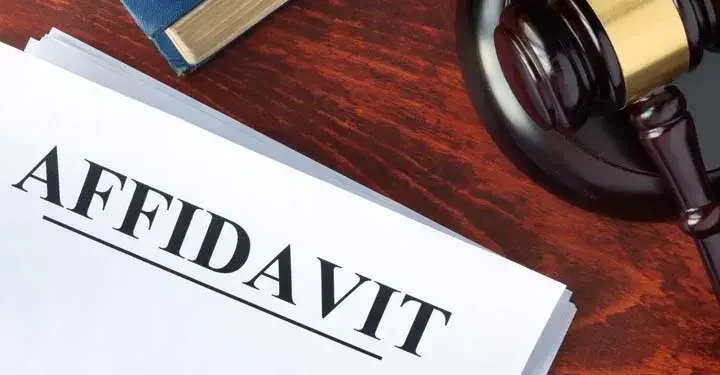An affidavit is a written statement, sworn to be true, that can be used as evidence in legal proceedings. You may find that you need an affidavit as a witness to an event or to verify the existence of certain facts, such as the rightful owner of a property, the occurrence of a birth or death, or financial details in business or loan documents. No matter the reason for which you need to executive a legally binding, sworn statement, a general affidavit form can help you get one drawn up and ready to go.

When executing an affidavit, you should always make sure you are following any specific rules your state may have. A California affidavit form is fairly straightforward, requiring basic identifying information along with the details to which you are attesting.
How to fill out a general affidavit form
There is no single, standard general affidavit format, but certain pieces of information are always required of the person executing the affidavit, called the affiant, whether it's a general affidavit of fact or a general affidavit of denial. These items include the following:
- Your name and address
- Your age and/or birthday
- Other identifying information, including possibly your occupation
- Date and location of signing
The content of the affidavit depends on the reason for which it is being made, but, overall, keep in mind that every detail you put in it should be true to the best of your knowledge. The law attaches harsh penalties to lying under oath, so you must always be sure the facts stated in your signed affidavit are true so far as you know.
When including facts in your affidavit, you should write in the first person, expressing your personal knowledge, and be as complete—yet concise—as possible. Missing or incorrect information could mean eventual legal problems concerning the affidavit, so record your version of the facts accurately and comprehensively.
All affidavits must be sworn to be true under oath and, according to California law, this means you must have a notary public—or other agent certified by the state to administer oaths, such as a judge—execute the affidavit. When seeking to obtain a notarized general affidavit, bring proof of your identity, such as a driver's license or passport, with you so the notary can verify your identity.
Affidavits in action
For example, what if your employer asks you for proof that you and your spouse are eligible for certain employment-related benefits, but you can't find your marriage certificate? A properly executed marriage affidavit may suffice.
Just as with a general affidavit, you must sign a statement under the penalty of perjury that, to the best of your knowledge, you and your spouse are married. In this particular situation, you may wish to have your spouse execute an affidavit as well.
Whether a legal or business transaction requires an affidavit—or if you simply want to have one on file for your own peace of mind—the process for acquiring one isn't complicated. Just stick to the truth and follow your state's guidelines for affidavits, and you'll have a written, sworn, legally binding statement in no time.

